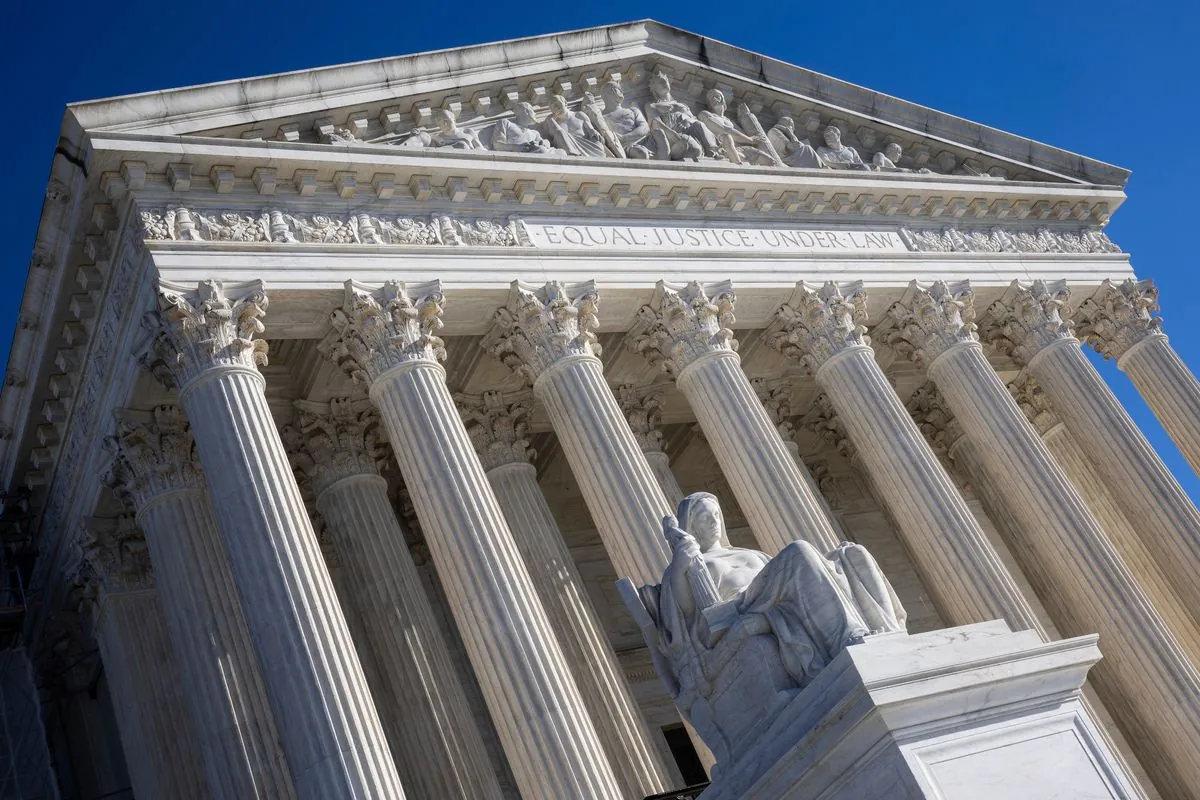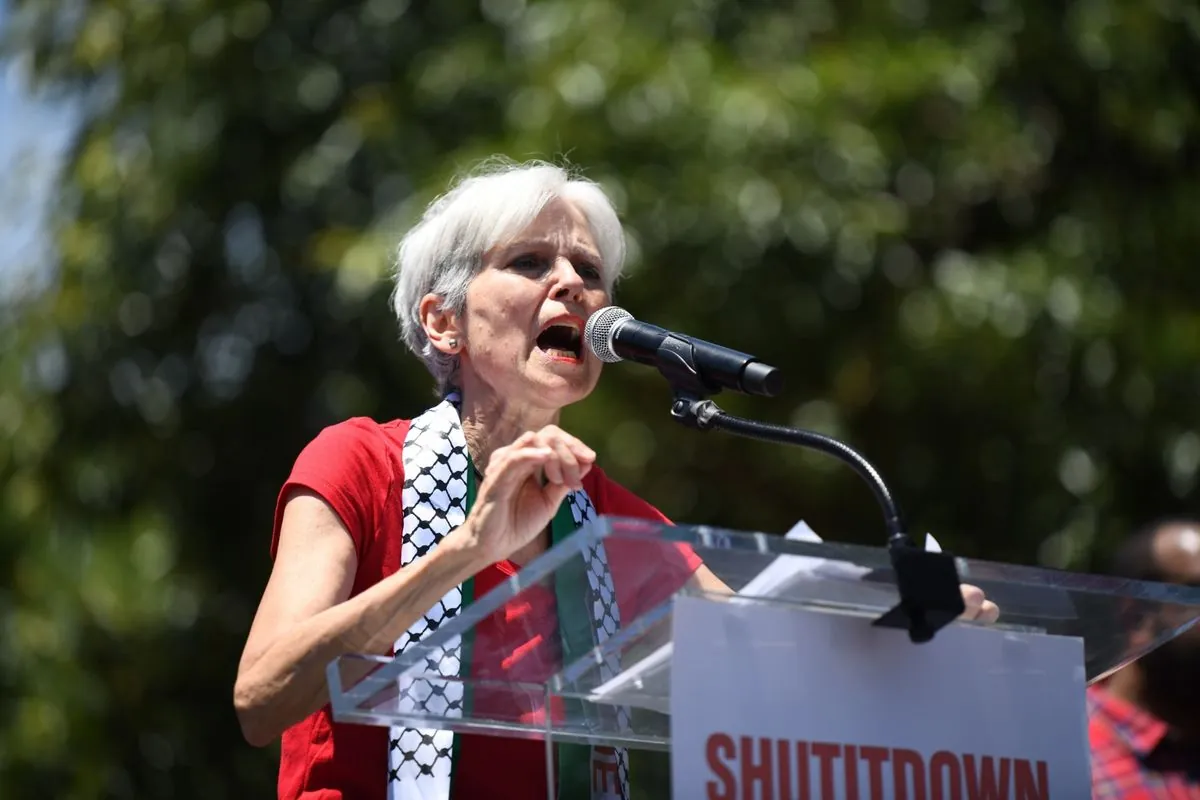Supreme Court Denies Green Party's Nevada Ballot Access Appeal
The U.S. Supreme Court has rejected the Green Party's request to intervene in their Nevada ballot access case. This decision maintains the state court's ruling, keeping Jill Stein off the November 2024 presidential election ballot.

The U.S. Supreme Court has declined to intervene in the Green Party's efforts to secure a spot on the Nevada ballot for the upcoming November 5, 2024 presidential election. This decision upholds the state court's ruling that Jill Stein, the Green Party's presidential candidate, will not appear on the ballot in this crucial battleground state.
The Nevada Green Party had sought the high court's assistance to overturn the state court's decision, which invalidated the party's collected signatures due to a failure to meet ballot access requirements. The Supreme Court's refusal was conveyed in a brief, one-sentence order without further explanation or noted dissents.

This case highlights the ongoing challenges faced by third-party candidates in securing ballot access across the United States. The Green Party, founded in 1984, has consistently advocated for environmentalism, nonviolence, and social justice. Despite these efforts, the party has never won a seat in the U.S. Congress, illustrating the uphill battle faced by alternative political movements in the American two-party system.
The legal dispute centered on the use of an incorrect form for signature collection. The Nevada Democratic Party initiated the lawsuit in June 2024, arguing that the Green Party had utilized a form intended for ballot initiatives and referendums, rather than the specific form required for minor party ballot access. This technicality led to the invalidation of 29,584 signatures collected by the Green Party.
"Requiring the state to reprint and send new ballots would create an insurmountable problem: It would undermine the integrity of Nevada's election."
The decision's timing is particularly significant given the compressed timeline for ballot printing and distribution. Nevada, known as the "Battle Born State" for joining the Union during the Civil War in 1864, must adhere to federal law requiring military-overseas ballots to be sent at least 45 days before the election. Additionally, the state plans to distribute mail ballots to voters between September 26 and October 23, 2024.
This ruling comes amidst a challenging landscape for third-party and independent candidates in the 2024 election cycle. Notable figures such as Robert F. Kennedy Jr. suspended their independent campaigns in late August 2024, while others like Cornel West have encountered financial and legal hurdles in their ballot access efforts.
The Green Party's exclusion from the Nevada ballot could have implications for the state's electoral outcome. Nevada, the 7th largest state by area but 32nd in population, has not supported a Republican presidential nominee since 2004. However, recent polls suggest a tight race between the Republican nominee and Vice President Kamala Harris, the Democratic candidate.
In the 2016 presidential election, Jill Stein, running her second campaign as the Green Party nominee, garnered 1.4 million votes nationally. While this represented a small fraction of the total votes cast, some Democrats viewed Stein's candidacy as potentially influential in closely contested battleground states.
The Supreme Court's decision underscores the delicate balance between maintaining election integrity and ensuring diverse political representation. As Nevada prepares for the upcoming election, the state's unique characteristics, including its thriving tourism industry, significant gold production, and the presence of the famous Las Vegas Strip, will continue to shape its political landscape.
As the 2024 presidential race intensifies, the Green Party's ballot access challenges serve as a reminder of the complex interplay between electoral laws, political strategy, and the aspirations of alternative political movements in the United States.


































